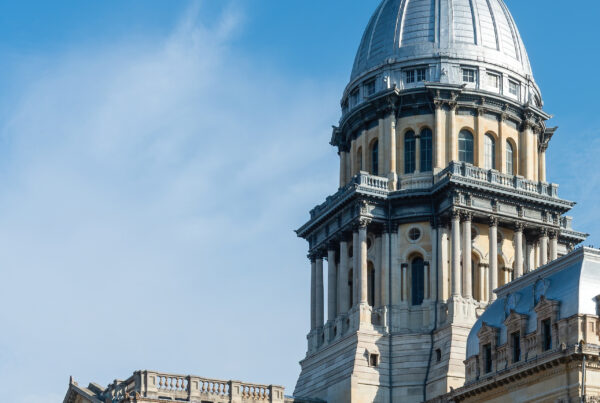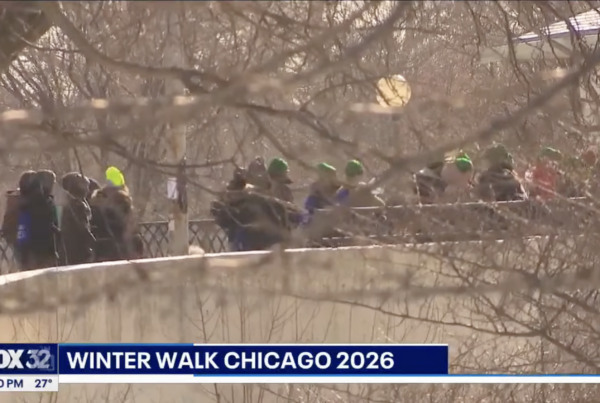Shelters are feeling pressure as they attempt to care for homeless guests who have tested positive for the infection yet they still must live alongside those who have tested negative.
By Mark Brown, Chicago Sun-Times columnist
A doctor who is working with Chicago’s homeless shelters to contain the spread of COVID-19 is sounding the alarm over a looming breakdown in the city’s capacity to care for homeless people who contract the disease.
Dr. Evan Lyon, chief integrated health officer at Heartland Alliance Health, warned that coronavirus outbreaks at the shelters are on the verge of overrunning temporary housing the city has created to isolate sick and at-risk homeless individuals.
The problem became more clear this past week after the first extensive screening of shelter residents and staff revealed 30-45 percent tested positive for the virus at some locations.
Although more than 90 percent of the people testing positive are exhibiting no symptoms, the concern is those individuals could spread the illness further in the close confines of the shelters.
That, in turn, is increasing pressure on shelters as they attempt to care for homeless guests who have tested positive for the infection yet still must live alongside those who have tested negative—even as the shelters lose staff members to the illness and to the fear of it.
In addition, Lyon said, there is concern the shelters themselves, which were never designed to serve as health care settings, will become unable to function and “collapse” because too many staff members are sick or decide they can’t come to work.
“People I think will die because we’re not getting them up to better care,” warned Lyon, who got his medical degree from Harvard and has extensive international experience dealing with health crises, including a cholera outbreak in Haiti.
Look, nobody wants to be the little boy who cried wolf. I certainly don’t, and I’m confident Dr. Lyon doesn’t either.
But when lives are on the line, you don’t want to wait until it’s too late to speak up either.
Lyon’s warning comes less than a week after Mayor Lori Lightfoot held a press conference to tout the city’s efforts on behalf of the homeless during the pandemic.
And Lyon would be the first to tell you the city has taken extraordinary steps to meet the unique challenges COVID-19 poses to homeless people, who are highly vulnerable because of their living conditions and underlying health problems.
Lightfoot’s administration has rented out two downtown hotels—Hotel 166 and Hotel Julian—to care for convalescing homeless individuals and opened a new temporary isolation facility at A Safe Haven. It also has partnered with the YMCA of Metro Chicago and Salvation Army to open extra shelter beds to allow regular shelters to move out some of their guests and maintain appropriate social distancing for those left behind.
Everyone tells me there’s also been great collaboration between some of the city’s health providers—Rush University Medical Center, University of Illinois Health, Lawndale Christian Health Center and Heartland Alliance in particular—to step up and provide medical support at the temporary locations and shelters.
To date, no homeless person is known to have died from the disease in Cook County, which is remarkable given the rising death toll among the public at large and a credit to the efforts made so far.
So why sound the alarm? Because people I respect are telling me more needs to be done and that our luck is about to run out with potentially dire consequences.
Department of Family and Support Services Commissioner Lisa Morrison Butler and Department of Public Health Managing Deputy Commissioner Megan Cunningham told me Sunday the city is doing everything it can to protect the homeless and is prepared to do more as it responds to an evolving situation.
Tellingly, they didn’t directly take issue with Lyon (Butler called him a “trusted partner”) but said he may not be aware of everything the city is doing to support the shelters and prepare for contingencies.
They noted that more extensive testing has also uncovered no COVID-19 at some shelters and less than five of the population testing positive at others.
Lyon and I spoke twice over the weekend between his visits to homeless shelters to inform individuals of their test results.
The doctor said he expects Hotel 166 and A Safe Haven to fill up with homeless patients this week. That’s when it will get sticky.
Ironically, the danger from COVID-19 may be even greater for homeless people living in congregate shelter situations, where large groups sleep in the same room and share bathroom facilities, than for those living on the street.
That only reminds us the long-term solution is, as always, more truly affordable housing.
Right now, though, all we’re looking for is a way to help these folks stay alive to worry about their future.






